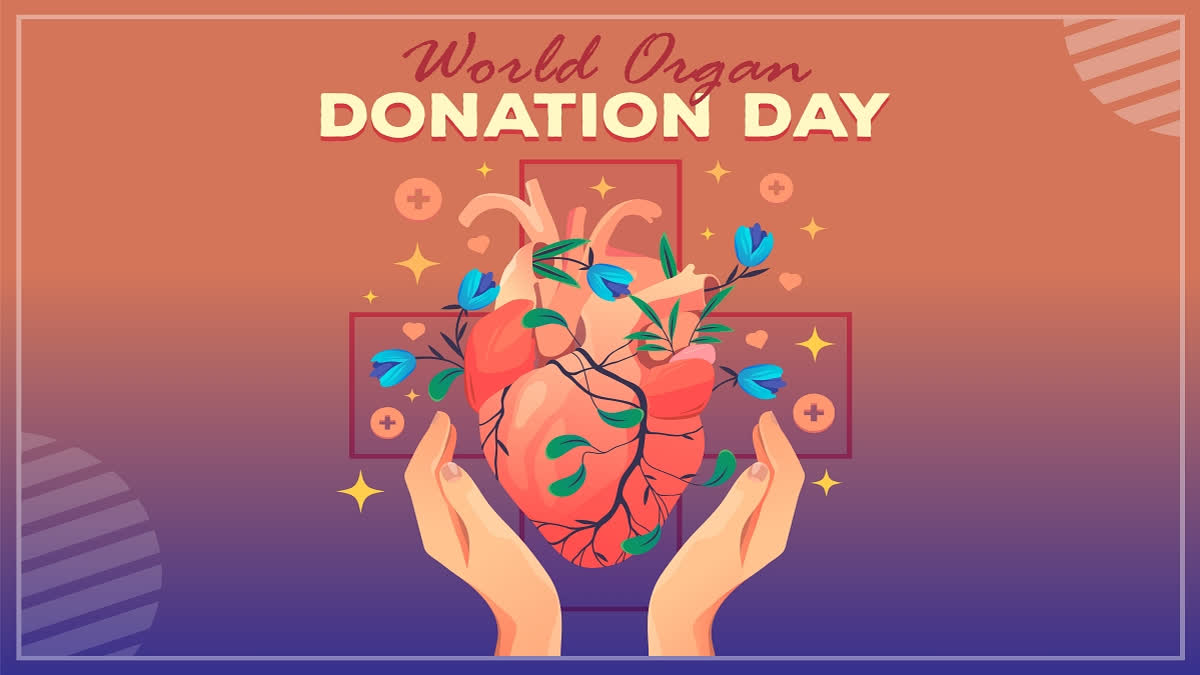Hyderabad:The World Organ Donation Day is celebrated on August 13 every year by the people, government organisations and other related professions to motivate normal human beings to pledge to donate organs after death, and to spread awareness about the importance of organ donation as well as to understand the value of organ donation in the life of an individual.
Due to the lack of awareness, there are myths and fears in peoples’ mind about organ donation. This year, 2024, the slogan for World Organ Donation Day is 'Be the Reason for Someone's Smile Today!'.
Organs That Can Be Donated
Organ transplantation and donation both can be successfully done due to the development of immuno-suppressive drugs which can increase the survival rate of organ recipients. The organs which can be successfully transplanted are the kidney, Lungs, Heart, Eye, Liver, Pancreas, Cornea, Small Intestine, Skin tissues, Bone tissues, Heart valves, Veins
Facts about Organ Donation
- Anybody can be an organ donor irrespective of their age, caste, religion, community etc
- There is no defined age for donating organs. The decision to donate organs is based on strict medical criteria, not age
- Tissues such as the cornea, heart valves, skin, and bone can be donated in case of natural death but vital organs such as heart, liver, kidneys, intestines, lungs, and pancreas can be donated only in the case of 'brain death'
- Organs such as the heart, pancreas, liver, kidneys and lungs can be transplanted to those recipients whose organs are failing because it allows many recipients to return to a normal lifestyle
- Anyone younger than age 18 needs to have the agreement of a parent or guardian to be a donor
- Having a serious condition like actively spreading cancer, HIV, diabetes, kidney disease, or heart disease can prevent you from donating as a living donor
- In India, you can also donate your whole body after death for medical research and education
- Transplantation of Human Organs Act, was passed in 1994 and amended in 2011, and the rules were notified in 2014 for the regulation of removal, storage and transplantation of human organs and for the prevention of commercial dealings in human organs
What Is Organ Donation?
Organ donation is the process of donating organs or biological tissue to a living recipient, who is in need of a transplant through medical treatments.
Can a Donor Donate Organs After a Cardiac Death?
No. In case of cardiac arrest all organs and tissues in the body suffer from lack of oxygen and die. People who have a cardiac death cannot be organ donors however they can donate tissues after death.
When Are Organs Removed After Death?
Organs must be removed as soon as possible after the determination of brain death, while circulation is being maintained artificially. Tissues may be removed within 12 to 24 hours.
What is Brain Death? (Cadaver Transplant)
